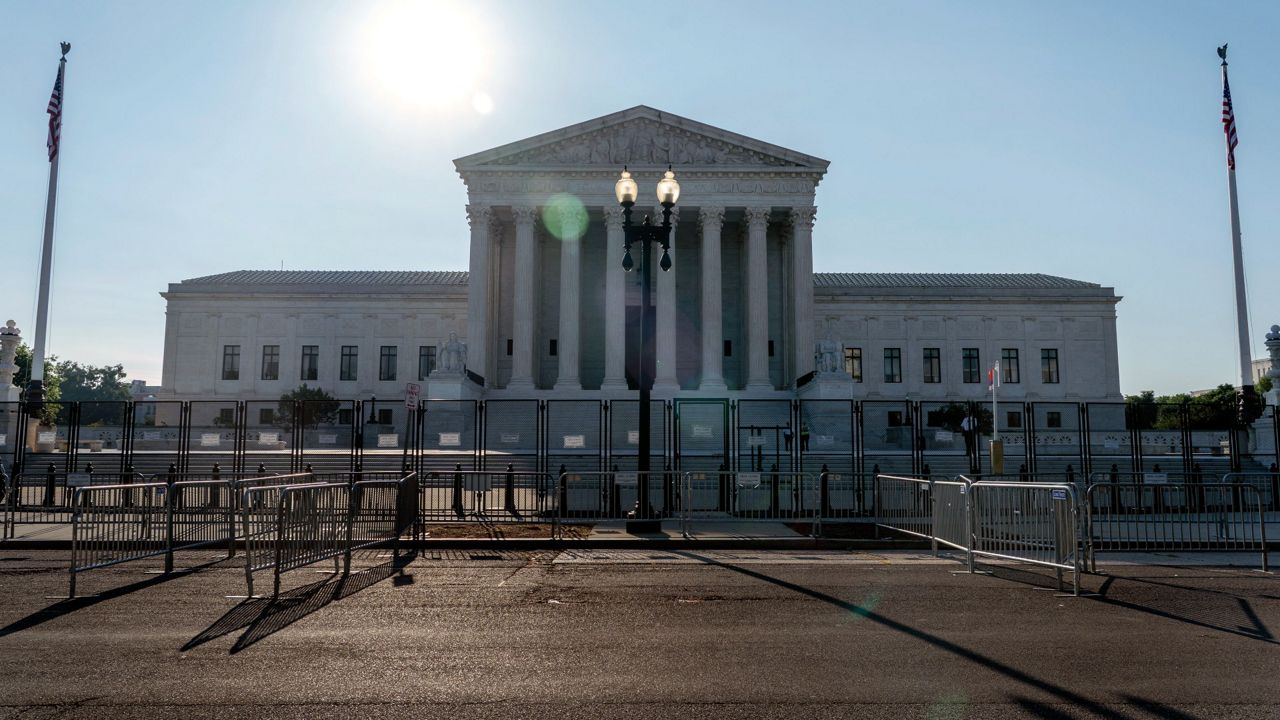The Supreme Court overturned the landmark 1973 Roe v. Wade decision that legalized abortion nationwide.
The ruling leaves questions of abortion up to the states. A draft of the ruling was leaked weeks ago, so many on both sides of the abortion debate have been expecting the court opinion.
“The Constitution does not confer a right to abortion; Roe and Casey are overruled; and the authority to regulate abortion is returned to the people and their elected representatives,” the court ruled in a 6-3 decision.
Many Republican-led states around the country have laws in place that will ban or severely restrict abortion after Friday’s ruling. But abortion will remain legal in North Carolina, at least for now.
The Supreme Court ruling overturns the constitutionally protected right to abortion in the United States. Roe v. Wade gave every woman the right to abortion access. The new ruling overturns that right, instead leaving it to the states to decide.
Some states have abortion bans on the books that pre-date the 1973 Roe ruling that could come back into effect. More than a dozen states have so-called “trigger laws” that would eliminate or severely restrict abortion access when Roe is overturned.
Planned Parenthood said it expects 26 states to quickly ban abortion after the Supreme Court riling.
North Carolina does not have a trigger law and abortion is still legal in the state.
Elected officials in North Carolina split down party lines in their reactions to Friday’s ruling.
“For 50 years, women have relied on their constitutional right to make their own medical decisions, but today that right has been tragically ripped away. That means it’s now up to the states to determine whether women get reproductive health care, and in North Carolina they still can,” Gov. Roy Cooper, a Democrat, said in a statement.
“This ruling is historic and monumental and affirms my belief that all life is sacred. Each state government and its duly elected representatives will now make the determination about the types of laws they wish to have in place,” Republican Sen. Thom Tillis said.
“I join with millions of Americans applauding the Supreme Court’s decision in Dobbs v. Jackson. It is an important step forward to protect the right to life of the unborn and end the tragedy of abortion,” said Republican Rep. Patrick McHenry.
“Despite today’s win for the most vulnerable among us, more work remains to protect the lives of those who cannot defend themselves,” McHenry said, hinting at possible battles in the North Carolina General Assembly over abortion access.
“The bottom line is this: women will lose control over all aspects of their lives because of this decision,” said Rep. Deborah Ross, a Democrat.
“The Supreme Court has done what many believed was unthinkable for nearly half a century. By overturning Roe v. Wade, they have stripped millions of women of a sacred constitutional right. And they did so even though the vast majority of Americans agree that women should have the right to make their own reproductive health care decisions,” she said.
“For now, abortion is still legal in North Carolina,” said Jenny Black, president of Planned Parenthood South Atlantic. “But this dangerous and chilling decision will have devastating consequences across the South, forcing people to travel hundreds, sometimes thousands, of miles for abortion care or potentially be forced to remain pregnant against their will.”
North Carolina does have some abortion restrictions on the books, including ban with few exceptions after 20 weeks of pregnancy and a 72-hour waiting period, according to Planned Parenthood. The state requires minors to get parental consent for an abortion or get an order from a judge.
There are still 14 abortion providers in the state.
Georgia, South Carolina and Tennessee are expected to severely limit or eliminate abortion access now that Roe has been overturned. Planned Parenthood said they expect women from other states in the South to travel to North Carolina for abortions.
The ruling would allow North Carolina’s Republican-led General Assembly to ban abortion in the state. But the Republicans do not have a veto-proof majority in the legislature, so any abortion bill would likely be vetoed by the governor.
This is an election year for the General Assembly and both parties will be talking about abortion. If the Republicans can regain their supermajority in the legislature, they could potentially pass new laws to severely restrict or ban abortion in the state.
“The Supreme Court has given politicians broad authority to control what we do with our bodies, sending the message that we can no longer be trusted to determine the course of our own lives,” said Jillian Riley, spokeswoman for Planned Parenthood South Atlantic in North Carolina.
“While abortion remains legal in North Carolina, our access here is hanging by a thread, and it all depends on the outcome of the November elections. Reproductive freedom is on the ballot for North Carolinians, and who we elect to the General Assembly will determine the future of abortion access for generations,” she said.
The state’s rights aspect of the ruling could throw other major court decisions into question, including rulings that protect same-sex marriage and contraception.
Justice Clarence Thomas, in his own concurring opinion, writes, “in future cases, we should reconsider all of this Court’s substantive due process precedents, including Griswold, Lawrence, and Obergefell.”
Those cases, Griswold, Lawrence and Obergefell, gave people the right to access contraceptives, overturned laws that made same-sex activity illegal, and legalized gay marriage nationwide.
Overturning Roe will have impacts on abortion access across United States, but the court’s debate on due process could lead to even more major rulings in the years to come.



